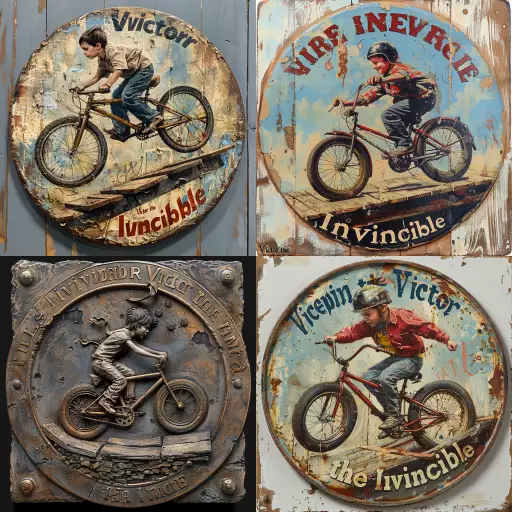Explore the Best AI Image Gallery

Beyond the Brush: AI-Generated Media and the Evolving Creative Landscape
The realm of creativity is undergoing a profound transformation, driven by the emergence of powerful artificial intelligence (AI) tools capable of generating media content. From stunning visuals to captivating music, AI algorithms are pushing the boundaries of artistic expression and challenging traditional notions of authorship. This blog post delves into the multifaceted world of AI-generated media, exploring its impact on the creative industry, potential applications, ethical considerations, and future trajectories.
The Creative Potential of AI
AI-powered tools offer a wide range of possibilities for creators across various disciplines.
- Visual Arts: AI algorithms can generate original artwork in diverse styles, from photorealistic paintings to abstract compositions. Tools like DALL-E 2 and Midjourney enable users to input text descriptions and receive corresponding visual outputs, democratizing artistic creation and fostering experimentation.
- Music Composition: AI systems can compose melodies, harmonies, and entire musical pieces in different genres. Platforms like Amper Music and Jukebox leverage machine learning to generate custom soundtracks for videos, games, and other media projects.
- Writing and Storytelling: AI-powered writing assistants can help authors overcome writers block, generate plot ideas, and even draft entire stories. Tools like GPT-3 and Jasper can assist in crafting compelling narratives, poems, and articles.
Impact on the Creative Industry
The integration of AI into creative workflows is already having a significant impact on various sectors:
- Increased Efficiency: AI tools can automate repetitive tasks, freeing up creators to focus on more conceptual and imaginative aspects of their work.
- New Creative Opportunities: AI empowers individuals with limited technical skills to explore creative avenues, fostering inclusivity and diversity in the arts.
- Democratization of Access: AI-powered tools are becoming increasingly accessible and affordable, leveling the playing field for aspiring artists and creators.
Ethical Considerations
The rise of AI-generated media raises important ethical considerations that require careful attention:
- Authorship and Copyright: Questions arise regarding ownership and attribution when AI systems create original content. Establishing clear guidelines for copyright protection in the age of AI is crucial.
- Bias and Representation: AI algorithms are trained on existing data, which may contain biases that perpetuate societal stereotypes or underrepresent certain communities. It is essential to ensure fairness and inclusivity in the development and deployment of AI-powered creative tools.
- Job Displacement: The automation potential of AI may lead to concerns about job losses in creative industries. However, it also presents opportunities for new roles and skill sets to emerge.
Future Trends
The field of AI-generated media is rapidly evolving, with exciting advancements on the horizon:
- Increased Realism and Personalization: AI systems will continue to generate increasingly realistic and personalized content, tailored to individual preferences and needs.
- Interactive and Immersive Experiences: AI-powered tools will enable the creation of more interactive and immersive experiences, blurring the lines between reality and virtuality.
- Collaboration Between Humans and AI: The future of creative work will likely involve a collaborative partnership between humans and AI, leveraging the strengths of both.
As AI technology continues to advance, its impact on the creative industry will be profound and multifaceted. Embracing this transformative potential while addressing ethical considerations will be crucial for shaping a future where creativity flourishes in new and exciting ways.
